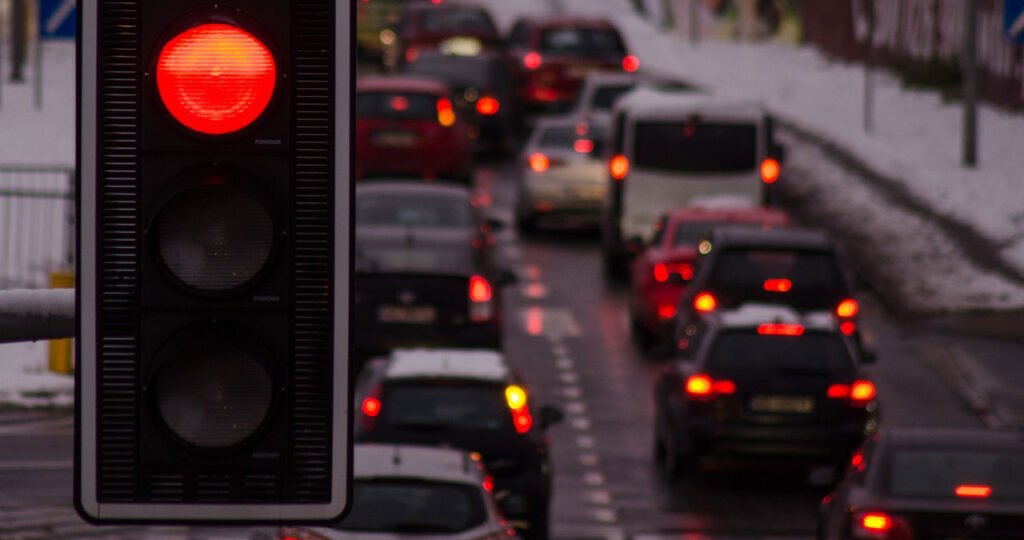Everyday irritations consisting of traffic noise can, over the years, negatively affect mental fitness, leading to despair, tension, and cognitive decline.
Not only are we able to reduce site visitor congestion, but environmental policies aimed at restricting air and noise pollutants may additionally assist. Carpooling or process opportunities nearer home also offer possible commuting options.
Traffic-Related Mental Health Issues
Traffic strain has a detrimental effect on intellectual fitness. Long commutes to paintings might also increase process and lifestyle dissatisfaction, similarly raising the chance of depression or anxiety. Furthermore, air and noise pollutants caused by traffic congestion increase exposure to carcinogenic factors like lead and carbon monoxide – potentially leading to memory loss or dementia in older adults.
Stress levels vary for everybody depending on various factors, which include private traits and circumstances. People who tend to time control perfection might experience burdens more significantly without difficulty. Furthermore, visitor congestion frequently causes frustration that becomes misdirected towards pedestrians or different drivers.
The good news is there are steps we will take to lessen site visitors-associated stress. One approach is carpooling, which allows humans to proportion driving obligations at the same time as socializing collectively. Another technique would be looking for lodges from employers so that you can leave in advance or work remotely.
Stress and Its Connection to Daily Traffic
Stressful conditions irritated by site visitors’ noise can raise risk factors for coronary heart sickness, excessive blood strain, and melancholy. Furthermore, air pollution due to traffic can damage our lungs, resulting in chronic respiration situations. Spending too much time sitting in front of visitors may increase our chance of Alzheimer’s disorder with age, considering extended sitting with no bodily pastime ends in reduced intellectual stimulation and, ultimately, cognitive decline.
Studies have also demonstrated that using strain is directly tied to street sorts and visitors’ situations. Physical responses like adrenaline and cortisol boom while riding under heavy visitor conditions, hindering an individual’s capacity to estimate distance or apprehend faces in visitors’ jams. Personal characteristics also play an element in how one perceives riding pressure – for instance, folks who are precise approximately time control tend to view traffic pressure more significantly intensely; such human beings ought to emerge as extra irritable at some point of jams as their temper flares up at pedestrians or different commuters as an alternative!

Fatigue and Commuting: A Vicious Cycle
Studies show that Americans spend over two hundred forty-nine hours every 12 months sitting with visitors, according to one estimate. This may have severe repercussions for intellectual health; prolonged commutes frequently cause stress and fatigue, as well as making humans feel powerless over delays that are frequently beyond their control. For instance, if your shuttle is delayed, you may want to cancel plans with friends or delay conferences at paintings.
Long commutes can reduce workout time, that’s negative to average fitness. Studies have related frequent site visitor’s congestion with excessive blood pressure, weight problems, and coronary heart ailment – no longer best!
A sized qualitative study looking at the outcomes of urban visitor jams (UTJs) on family contributors’ intellectual health determined that families suffering from them enjoy decreased lifestyle delight and lower city quality of existence (QOL). Therefore, when growing UTT initiatives and rules, it is crucial to contain health-orientated techniques. A few small adjustments for your everyday ordinary may additionally help cut commuting times significantly while improving intellectual well-being.
Irritability and Road Rage: The Traffic Effect
Long commutes and visitor congestion have more than one negative health implication; their pressure can also cause irritability, anger, and frustration that can spread into other factors of life, including work, circle of relatives, and social sports. This is, in particular, applicable to humans stricken by anxiety issues or despair.
Road rage is a doubtlessly lethal form of competitive or violent behavior, from shouting out a window at some other driving force to assaulting them physically. Individuals affected by avenue rage usually show high levels of anger and aggression, which increases their risk of accomplishing unstable behaviors together with rushing or unexpectedly switching lanes.
Studies have proven that street rage is regularly the result of untreated mental fitness situations. Recognizing this connection can help clinicians apprehend its significance for treating men or women’s intellectual fitness needs in addition to helping increase wholesome coping mechanisms to address everyday visitors along with working towards mindfulness, getting good enough relaxation exercising, and spending exceptional time with cherished ones to relieve tensions.
Mindfulness and Calming Techniques for Commuters
Assuming you don’t work at home full-time, your travel is, in all likelihood, an unavoidable part of your day-by-day existence. To lessen your time as much as feasible, try leaving earlier, negotiating with your boss about arriving later, or even trying to find closer jobs in your area.
Commuters searching out relief, mindfulness, and meditation strategies along with body experiment meditation may assist. Becoming aware of sensations inside your physical body as you navigate visitors (Bhikkhu 1996) and returning your interest every time your mind wafts to stressful perceptions or thoughts is one technique that can help preserve pressure tiers down while riding through traffic (Bhikkhu 1996). Doing this enables bringing the focal point again onto frame sensations to calm and center the mind, supporting keeping away from capability stressors along the manner.
Ronald Siegel, an assistant scientific professor of psychology at Harvard Medical School and mindfulness instructor, suggests trying taillight meditation. When caught in site visitors, he concentrates on the colors and shapes of back lights around him – retaining himself alert yet comfortable at the same time.
Promoting Mental Wellness Amidst Daily Traffic
Studies performed recently with the aid of researchers found out that those residing close to roads with better degrees of traffic noise experienced extra mental health troubles than folks who journey shorter distances and live near greater peaceful environments. This is probably because steady exposure disrupts our physiological baseline and leads to accelerated pressure and irritability.
Furthermore, those people may also interact in unstable riding behaviors on highways like speeding and lane converting that boom injuries and injuries – another key cause why decreasing road traffic noise is fundamental for enhancing our fitness.
There are numerous strategies to be had to sell mental well-being and decrease day-by-day traffic strain. Carpooling with co-passengers is one manner to do this, while meditation and deep respiratory techniques can also be powerful equipment for staying calm during annoying moments. Furthermore, public regulations to reduce environmental visitors’ noise may additionally have high-quality mental health effects as well; studies have additionally discovered that commuters with more admission to transit generally tend to revel in lower melancholy prices than drivers, while congestion relief initiatives have confirmed their fee in improving urban citizens’ intellectual wellness.
Advocating for Commuter-Friendly Urban Planning
Traffic congestion is absolutely dangerous to our surroundings, but few recognize its bad impact on mental health as well. Stress from visitors doesn’t go away as soon as we park the auto; long commutes can contribution to weight problems, high blood stress, and bad cardiovascular health. Luckily, answers exist: greater employers are presenting remote painting options while towns make bigger public transit networks and add motorcycle lanes.
Unfortunately, studies indicate that emissions from visitors’ emissions may have extremely damaging impacts on brain health. According to 1 observation, those dwelling near visitors’ arteries have been 12 percent more likely to increase dementia at the same time as different research related to air pollution with reduced density of white count in the mind related to cognitive decline. These issues may be mitigated by advocating for commuter-friendly city-making plans inclusive of mandating sidewalks in residential zones or giving transit precedence at site visitors’ lights – such measures will encourage more humans to stroll or experience bikes for transportation at the same time as decreasing car ownership on the road thereby helping ease congestion and air pollutants troubles.
Conclusion
Traffic congestion is more than just an inconvenience; it additionally has real health ramifications. Long commutes can lessen process pride and make usual lifestyles pleasant, contributing to greater stress levels and mental fitness issues. Traffic pollution can lead to lung and heart diseases. A 2017 observation concluded that the ones living on roads (within three hundred meters) are at greater hazard of dementia than the ones living further away.
Traffic noise may be particularly distressing for older adults. According to research on its effect on mental health, fluctuating site visitors’ noise annoyance has been found to negatively correlate with melancholy and anxiety – with its effect being especially outstanding amongst street traffic noise publicity rather than railway or plane noise publicity. Therefore, prioritizing projects related to road traffic noise discount along with congestion reduction, air pollutants discount, stepped forward commuting conduct, as well as urban planning projects offering opportunity strategies of staying energetic without riding is necessary so as for human beings to feel relaxed with site visitors noise problems.


